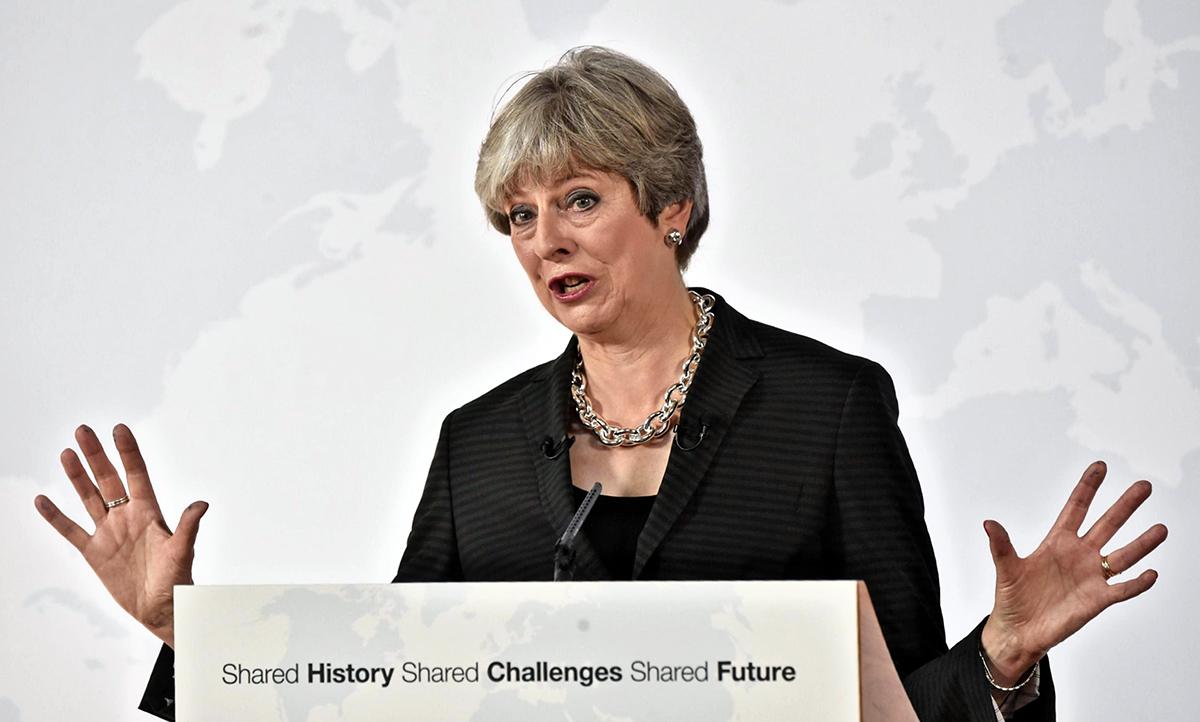Brexit: Here's why Moody's says it downgraded UK to lowest ever credit rating
Top ratings agency downgraded Britain to an Aa2 from an Aa1 rating

Your support helps us to tell the story
From reproductive rights to climate change to Big Tech, The Independent is on the ground when the story is developing. Whether it's investigating the financials of Elon Musk's pro-Trump PAC or producing our latest documentary, 'The A Word', which shines a light on the American women fighting for reproductive rights, we know how important it is to parse out the facts from the messaging.
At such a critical moment in US history, we need reporters on the ground. Your donation allows us to keep sending journalists to speak to both sides of the story.
The Independent is trusted by Americans across the entire political spectrum. And unlike many other quality news outlets, we choose not to lock Americans out of our reporting and analysis with paywalls. We believe quality journalism should be available to everyone, paid for by those who can afford it.
Your support makes all the difference.Britain’s credit rating has been reduced over fears Brexit could harm the country’s economic growth.
Moody’s, one of the UK’s top ratings agencies, downgraded the country to an Aa2 from an Aa1 rating this week.
The news comes after Theresa May delivered a speech in Florence outlining plans Brexit plans, in which she confirmed that Britain will leave the European single market but offered little clarity on plans for an alternative economic relationship.
Credit rating agencies rate a country on the strength of its economy, scoring governments on how likely they are to pay back their debt.
A downgraded rating can affect how much it costs governments to borrow money in the international financial markets.
Moody's gave several key reasons explaining its decision.
Brexit
Economic uncertainty as a result of leaving the EU is a key factor in the downgrading of the UK’s credit rating.
“Moody's believes that the UK government's decision to leave the EU Single Market and customs union as of 29 March 2019 will be negative for the country's medium-term economic growth prospects,” it said.
“Moody's does not expect growth to recover to its historic trend rate over the coming years,” it added.
“The UK is a relatively open economy, and the EU is by far its largest trading partner. Research by the National Institute of Economic and Social Research (NIESR) suggests that leaving the Single Market will result in substantially lower trade in goods and services with the EU.
“In a similar vein, both the NIESR and the Bank of England estimate that private investment will be materially lower in the coming years than in a non-Brexit scenario.”
The firm said it was not confident the UK government will be able to secure a replacement free trade agreement with the EU which “substantially mitigates the negative economic impact of Brexit”.
Even a best-case scenario would not give the same access to the EU Single Market that the UK currently has, Moody’s said.
“It would likely impose additional costs, raise the regulatory and administrative burden on UK businesses and put at risk the close-knit supply chains that link the UK and the EU.”
Any agreement would also take years to negotiate, further prolonging uncertainty for businesses.
“Brexit carries with it a heavy policy and legislative agenda which will dominate policymaking in the years to come,” it said, which will limit the capacity to address other challenges related to the UK’s growth potential.
Weaker public finances
Moody's said it expects weaker public finances in the future, in part, because of the current economic slowdown - but also because of an easing of austerity.
“Since 2015, the government has been finding it increasingly difficult to implement the spending cuts that it has been targeting, in particular on welfare spending,” it said.
“More recently, the government has yielded to pressure and raised spending in several areas, including for health and adult social care. It also agreed to above-budget pay increases for some public sector workers.
“While these additional expenditures will be funded out of current budgets, the pressure to continue to increase spending in the coming years is likely to remain high, in particular on health care and the public sector wage bill.”
At the same time, Moody’s pointed out, revenues are unlikely to compensate for higher spending.
Join our commenting forum
Join thought-provoking conversations, follow other Independent readers and see their replies
Comments